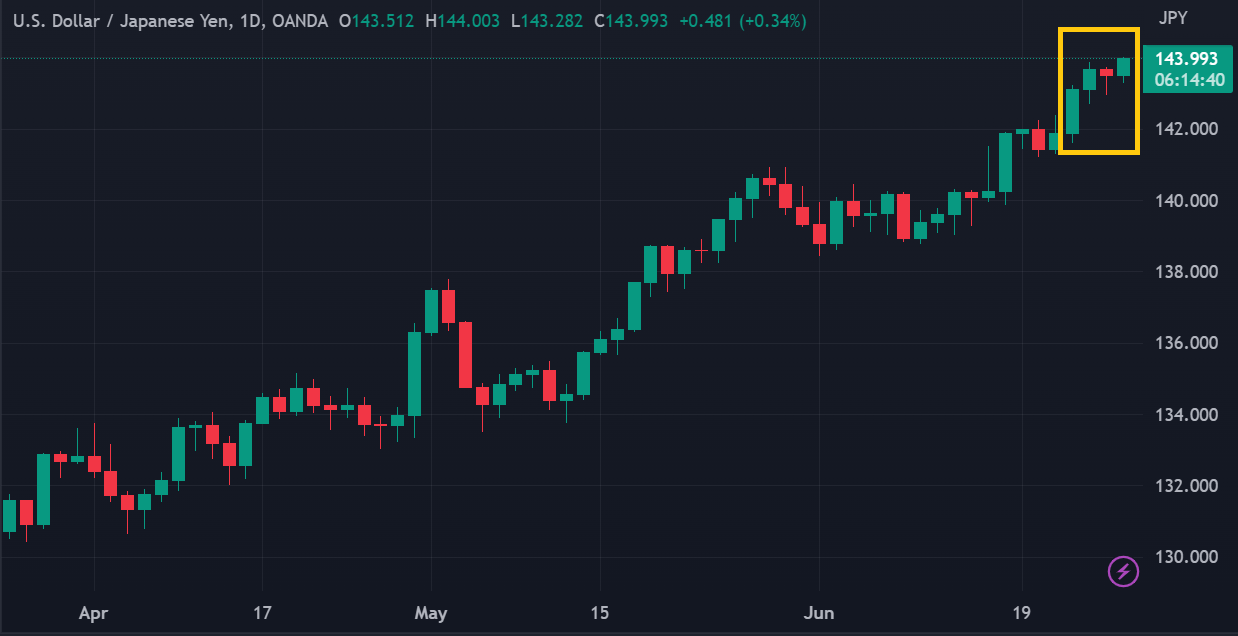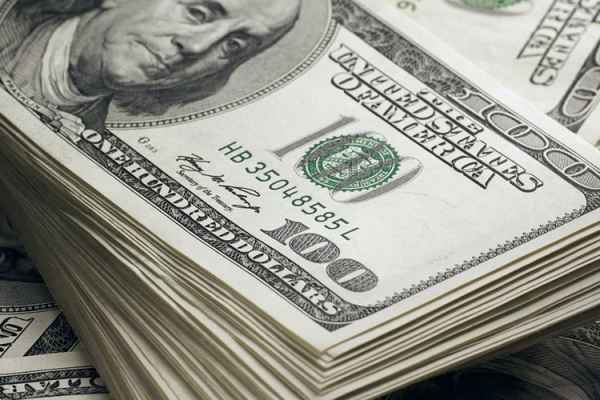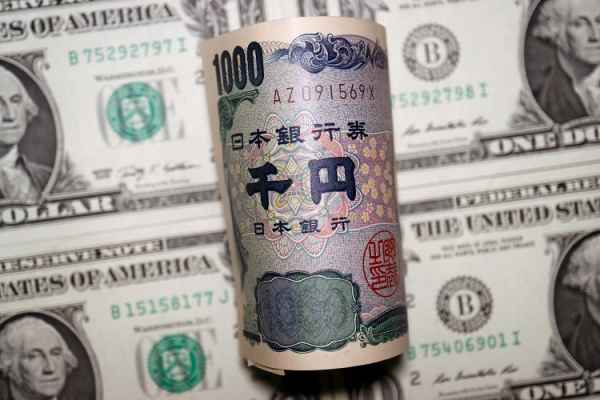Last year, Japan stepped in to intervene in the yen when USD/JPY reached over 145. Will the policy be repeated?
The US dollar index (DXY) weakened in early trading this week, but the US dollar continued its rally against the Japanese yen. The USD/JPY rate reached a seven-month high of around 144.00 in the New York session on Tuesday (June 27). However, analysts warn that the USD/JPY rally ahead faces some significant challenges.

Last year, Japan intervened in the forex market when the yen weakened to more than 145 against the US dollar. The yen slowly strengthened until USD/JPY fell to around 130 earlier this year. However, the Bank of Japan's (BoJ) extremely dovish stance has made the yield gap between Japanese and US bonds widen again. This situation drove the USD/JPY rally to its current range.
As USD/JPY approaches the 145 threshold, market participants are increasingly wary of the possibility of Japanese intervention again. Concerns are growing following a statement by a top Japanese official this morning.
"We will closely watch currency market moves with a strong sense of urgency and will respond appropriately if the moves become excessive," said Japan's Finance Minister, Shunichi Suzuki.
Most analysts agree that USD/JPY has limited room for a bullish rally, but there are different opinions on what factors will trigger a reversal in the future. Some think Japan will intervene again when the USD/JPY rate surpasses 145 shortly.
"If big data comes out of the US in the next couple of weeks (and) US dollar-yen spikes above 145, then I would think that the Bank of Japan would step in, or threaten to step in," Francesco Pesole, currency strategist at ING, said.
Some other analysts think that the movement of USD/JPY will reverse when the BoJ starts to change its policy. They believe Japan's high inflation data will urge the BoJ to remove the YCC policy or normalize interest rates.
"Traders are probably correct that the chances of direct FX intervention are low, something reflected in subdued implied volatility measures for the yen," said Marios Hadjikyriacos, senior analyst investation XM. "Yet the prospect of a BoJ move next month has become increasingly realistic as core inflation is running above 4%, and markets seem to be ing on this risk judging by the slow grind lower in Japanese yields. In this sense, the inflation stats from Tokyo on Friday will be crucial for yen crosses, since they could trigger a reality check."

 Dedicated FREE FOREX VPS
Dedicated FREE FOREX VPS Free FOREX Virtual Private Server
Free FOREX Virtual Private Server MT4 Demo Contest, Get $500
MT4 Demo Contest, Get $500 Sign Up for an Account, Claim 60% Deposit Bonus
Sign Up for an Account, Claim 60% Deposit Bonus Free MT4/MT5 VPS 2024
Free MT4/MT5 VPS 2024 Send E-mail and Get Free Merchandise
Send E-mail and Get Free Merchandise $1K Refer a Friend Bonus for Pepperstone Pro clients
$1K Refer a Friend Bonus for Pepperstone Pro clients Maximize Your Earnings with 100% Deposit bonus
Maximize Your Earnings with 100% Deposit bonus Trade to Win, $5,000 Monthly Demo Contest
Trade to Win, $5,000 Monthly Demo Contest Claim 30% + 15% Deposit Bonus from LiteFinance
Claim 30% + 15% Deposit Bonus from LiteFinance






